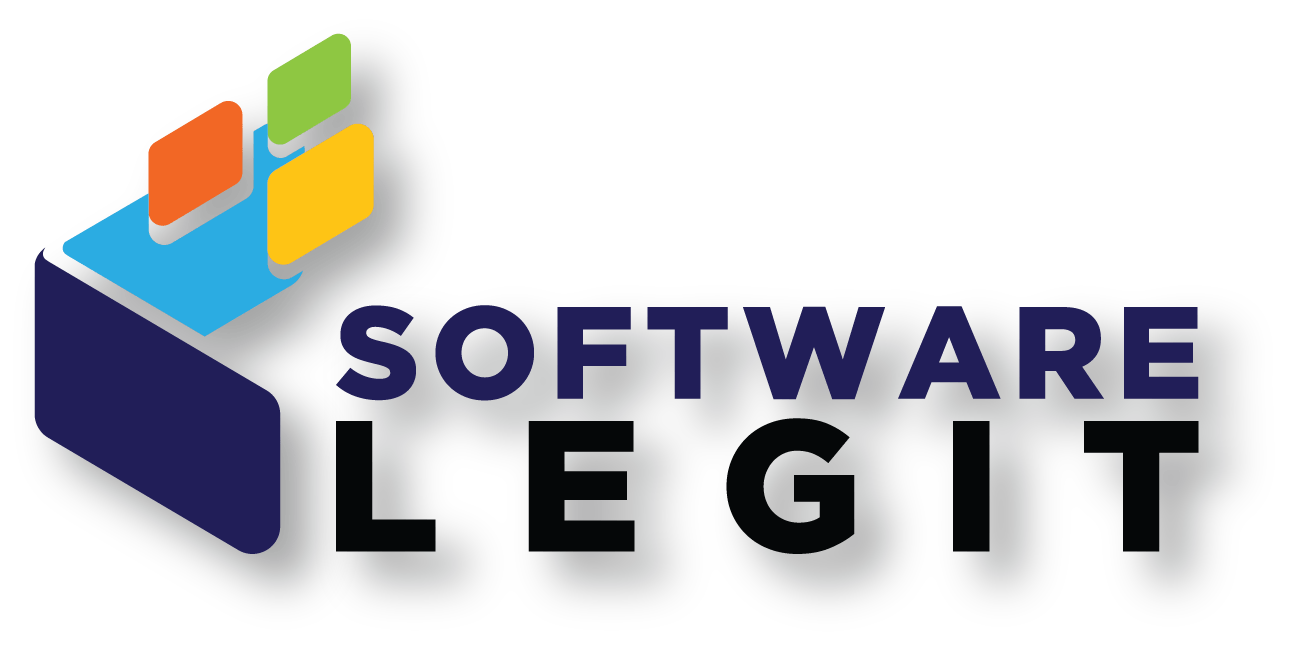AI and software dominate, erasing emotions and morals in a logical future.

AI and software dominate, erasing emotions and morals in a logical future.
Table of Contents
Introduction The Rise of Digitalization The Role of Software and AI The Decline of Human Touch, Emotion, and Morality The Shift in Education and Career Focus The Path to Fame and Celebrity Status Conclusion
Introduction
AI and software dominate, erasing emotions and morals in a logical future.In the rapidly evolving world, the future is increasingly dependent on a digitalized environment driven by software and artificial intelligence (AI). This transformation is reshaping various aspects of our lives, from how we work to how we interact with each other. In this blog, we will explore the implications of this shift, focusing on the diminishing importance of human touch, emotion, and morality, and the changing landscape of education and career development. We will also discuss how acquiring skills in software and AI can lead to fame and celebrity status in the internet knowledge-sharing world.The digital revolution is upon us, and its impact is undeniable. From self-driving cars to intelligent assistants, software and artificial intelligence (AI) are rapidly transforming every facet of our lives. As we hurtle towards the future, one thing becomes increasingly clear: the ability to leverage these powerful technologies will be paramount.This blog delves into the rise of digital architects, exploring how they are reshaping the architectural landscape and the incredible potential they hold for the future.
This digital landscape presents a unique opportunity for a new breed of pioneers:
The Rise of Digitalization
Digitalization is the process of converting information into a digital format, making it accessible and manageable through electronic devices. This trend has been accelerating over the past few decades, driven by advancements in technology and the increasing availability of the internet. The digitalized environment has revolutionized various industries, including healthcare, finance, education, and entertainment.AI and software dominate, erasing emotions and morals in a logical future.
Digital Architects. These individuals are not just software developers or AI engineers; they are visionaries who understand the potential of these technologies to shape a more efficient, automated future. Architecture has always been a reflection of human creativity and technological progress. From the grandeur of ancient pyramids to the intricacy of Gothic cathedrals, each era has showcased its unique architectural innovations. However, the advent of the digital age has accelerated this evolution, introducing new tools and methodologies that are redefining the boundaries of architectural design. Digital architects are at the forefront of this transformation, blending traditional architectural principles with cutting-edge technology. These professionals utilize advanced software and AI to create designs that are not only aesthetically pleasing but also highly functional and sustainable. The role of digital architects extends beyond mere design; they are problem-solvers, innovators, and visionaries who are shaping the future of our built environment.
The Role of Software and AI
AI and software dominate, erasing emotions and morals in a logical future.

Maximizing Efficiency Of Windows 11pro The Role of Smart Work and Time-Saving Software in Professional Growth
Artificial intelligence is revolutionizing the field of architecture by introducing unprecedented levels of automation and intelligence. AI algorithms can analyze vast amounts of data to identify patterns and generate optimal design solutions. This capability allows digital architects to tackle complex challenges, such as optimizing energy efficiency, enhancing structural integrity, and improving occupant comfort.
One of the most exciting applications of AI in architecture is generative design. By inputting specific parameters and constraints, digital architects can use AI to generate multiple design options that meet the desired criteria. This not only accelerates the design process but also fosters creativity by exploring unconventional solutions that might not have been considered otherwise.Moreover, AI-powered tools can simulate environmental conditions, such as lighting, acoustics, and thermal performance, enabling architects to fine-tune their designs for optimal performance. This integration of AI and software in architecture ensures that buildings are not only visually appealing but also sustainable and efficient.AI and software dominate, erasing emotions and morals in a logical future.
Beyond Human Touch: Efficiency Through Automation
A cornerstone of the digital future lies in its ability to streamline processes and eliminate human error. Imagine a world where mundane tasks are handled entirely by AI-powered systems, freeing up human resources for more complex endeavors. Software will automate everything from logistics and manufacturing to customer service and data analysis.
This shift towards automation doesn’t necessarily signify the demise of human jobs. Instead, it signifies a crucial evolution. Humans will transition from manual labor to roles that leverage our inherent creativity, critical thinking, and social skills – areas where AI currently lags behind.
For instance, Building Information Modeling (BIM) software allows for the creation of highly detailed digital representations of buildings, incorporating data on materials, construction processes, and lifecycle management. This not only enhances the accuracy of designs but also facilitates collaboration among various stakeholders, including engineers, contractors, and clients. AI and software dominate, erasing emotions and morals in a logical future.
Case Studies: Real-World Applications
To illustrate the impact of digital architects, let’s explore a few real-world applications where software and AI have played a crucial role
The Evolving Skillset: Software and AI Expertise Reign Supreme
In this brave new world, the most valuable assets will be the skills needed to design, develop, and manage these complex digital systems. Software development and AI expertise will become the new gold standard of education and career paths.AI and software dominate, erasing emotions and morals in a logical future.
This doesn’t negate the importance of foundational knowledge. However, the focus will shift towards practical applications – how to code, how to train AI models, how to integrate these technologies into existing infrastructure. The ability to think critically about the ethical considerations of AI development will also be crucial.
Rethinking Education: A Focus on Practical Applications
Traditional education systems, often focused on rote learning and standardized tests, may not adequately prepare students for the demands of the digital future. We need a paradigm shift towards a more application-oriented approach.AI and software dominate, erasing emotions and morals in a logical future.
Imagine interactive coding bootcamps, project-based learning that utilizes AI tools, and educational platforms that gamify the acquisition of digital skills. This will empower individuals to become active participants in shaping the digital landscape, not just passive consumers.
The Democratization of Knowledge Sharing: Your Ticket to Fame
The internet has become the ultimate equalizer, offering a platform for anyone with expertise to share their knowledge with the world. This is where the democratization of knowledge sharing comes into play. AI and software dominate, erasing emotions and morals in a logical future.
By creating informative blogs, engaging tutorials, or hosting interactive workshops on software development and AI, you can establish yourself as a thought leader in this rapidly evolving field. The key lies in creating compelling and informative content that caters to the needs of your target audience.
The Decline of Human Touch, Emotion, and Morality
As we become more reliant on digital technologies, the importance of human touch, emotion, and morality is diminishing. In a digitalized environment, interactions are often mediated by screens and devices, reducing the need for face-to-face communication. This shift can lead to a decrease in empathy and emotional connection, as well as a potential erosion of moral values.
AI and software dominate, erasing emotions and morals in a logical future.
The Shift in Education and Career Focus
In the future world, traditional education may become less relevant as the focus shifts towards acquiring skills in software and AI. The demand for highly knowledgeable individuals in these fields is growing, and those who possess the necessary skills can achieve success without following the conventional educational path. Online courses, coding bootcamps, and self-directed learning are becoming popular alternatives to traditional education.
The Path to Fame and Celebrity Status
In the digitalized environment, individuals who excel in software and AI can quickly gain recognition and fame. The internet provides a platform for sharing knowledge and showcasing expertise, allowing talented individuals to build a following and establish themselves as thought leaders. By consistently producing high-quality content and engaging with their audience, they can achieve celebrity status in the knowledge-sharing world.
The future world is indeed moving towards a digitalized environment where software and AI play a crucial role. Here are some key points to consider:
Skills over Traditional Education: In the future, skills in software development, AI, and other technological fields will be more important than traditional education. Practical knowledge and the ability to adapt to new technologies will be highly valued1.
AI and Job Creation: AI is expected to create new job opportunities, especially in fields like data science, big data, and business intelligence2. While some jobs may be automated, AI can also enhance human capabilities and productivity3.
Reskilling and Upskilling: As the job market evolves, reskilling and upskilling will be crucial. Workers will need to continuously learn and adapt to new technologies to stay relevant3.
Digital Fame: With the rise of the internet and digital platforms, individuals can gain fame and recognition by sharing their knowledge and skills online. Building a strong online presence and engaging with a global audience can lead to opportunities and success2.
By focusing on developing skills in software and AI, and leveraging digital platforms to share knowledge, we can navigate the future world together and achieve success. AI and software dominate, erasing emotions and morals in a logical future.
Conclusion:
AI and software dominate, erasing emotions and morals in a logical future.
The future world is increasingly dependent on a digitalized environment driven by software and AI. As human touch, emotion, and morality become less important, the focus shifts towards acquiring skills in these fields. Those who excel in software and AI can achieve fame and celebrity status in the internet knowledge-sharing world. Embracing this transformation and adapting to the changing landscape will be crucial for success in the future.


![Microsoft Office 2021 Home and Business for Mac: A Smart Investment for Your Workspace Introduction Microsoft Office 2021 Home and Business for Mac is a comprehensive productivity suite designed to cater to the needs of individuals and small businesses. With its powerful applications and user-friendly interface, this software package offers a smart investment for your workspace. In this article, we will delve into the key features and benefits of Microsoft Office 2021 Home and Business for Mac. We will also explore why it is a smart investment for your workspace and how you can buy a key online to get started. Key Features of Microsoft Office 2021 Home and Business for Mac Microsoft Office 2021 Home and Business for Mac includes the following essential applications: Word: Create professional-looking documents with ease using Word's advanced formatting tools and templates. Excel: Analyze and manage data efficiently with Excel's powerful spreadsheet functions and charting capabilities. PowerPoint: Design engaging presentations with PowerPoint's customizable templates and animation effects. Outlook: Stay organized and connected with Outlook's email, calendar, and contact management features. OneNote: Capture and organize your notes, ideas, and tasks in a digital notebook. Benefits of Investing in Microsoft Office 2021 Home and Business for Mac Enhanced Productivity: Microsoft Office 2021 Home and Business for Mac is designed to help you work more efficiently and effectively. With its intuitive interface and robust features, you can create professional-quality documents, spreadsheets, presentations, and emails in less time. Collaboration Made Easy: Microsoft Office 2021 Home and Business for Mac offers seamless collaboration features that allow you to work with others in real-time. Share documents, edit together, and track changes to ensure everyone is on the same page. Increased Efficiency: Microsoft Office 2021 Home and Business for Mac is packed with time-saving tools and features that can help you streamline your workflow. From automated tasks to intelligent suggestions, this software can help you save time and effort. Improved Organization: Microsoft Office 2021 Home and Business for Mac provides you with a centralized platform to manage your documents, emails, and notes. With features like cloud storage and synchronization, you can access your files from anywhere and keep your workspace organized. Why Microsoft Office 2021 Home and Business for Mac is a Smart Investment Cost-Effective Solution: Microsoft Office 2021 Home and Business for Mac offers a cost-effective solution for individuals and small businesses. By investing in this software, you can avoid the high costs associated with hiring professional writers, designers, and data analysts. Versatility and Flexibility: Microsoft Office 2021 Home and Business for Mac is a versatile tool that can be used for a wide range of tasks. Whether you're creating marketing materials, managing projects, or preparing financial reports, this software has you covered. Compatibility and Integration: Microsoft Office 2021 Home and Business for Mac seamlessly integrates with other Microsoft applications and services, such as OneDrive and Microsoft Teams. This makes it easy to collaborate with colleagues and access your files from anywhere. Security and Reliability: Microsoft Office 2021 Home and Business for Mac is a trusted and reliable software solution. Microsoft is committed to providing ongoing updates and security patches to ensure your data is protected. How to Buy a Microsoft Office 2021 Home and Business for Mac Key Online If you're ready to invest in Microsoft Office 2021 Home and Business for Mac, you can easily buy a key online. There are several reputable online retailers that offer this software at competitive prices. When buying a key online, be sure to choose a trusted seller to avoid purchasing counterfeit or unauthorized products. Look for sellers with positive reviews and a good reputation. In this technology era, Microsoft continues to innovate and deliver groundbreaking tech updates that enhance our work and user experience. From advancements in productivity software to cutting-edge cloud solutions, Microsoft's commitment to technological excellence has transformed the way we live and work. CTA marketing: Ready to invest in a smarter, more efficient workspace? SoftwareLegit.com offers you the perfect opportunity to buy Microsoft Office 2021 Home and Business for Mac at an unbeatable price! Simply use the code SAVE30 at checkout to snag a 30% discount on this essential software. Don't miss out on this amazing deal! Upgrade your Mac workspace today and unlock a world of productivity with Microsoft Office 2021 Home and Business. Click here to learn more and claim your discount: [Link to SoftwareLegit.com page selling Microsoft Office 2021 Home and Business for Mac] Happy Shopping! Conclusion Microsoft Office 2021 Home and Business for Mac is a valuable addition to any workspace. With its powerful features, user-friendly interface, and affordable price, it is a smart investment for individuals and small businesses. By buying a key online and leveraging the benefits of this software, you can enhance your productivity, improve collaboration, and streamline your workflow. 21/9/2021 Complete quora space ,answer 4, medium, blogger ,1 smm 2 fb group 2 website blog 4 22/9/2024 Complete quora space ,answer 5, medium, blogger ,1 smm 2 fb group 2 website blog1 coz loasheding i can’t cover time today for any work coz loadsheding with net slow so website is not opening and i can’t publish another blog](https://softwarelegit.com/wp-content/uploads/2024/09/Untitled-design-5-1024x512.png)






